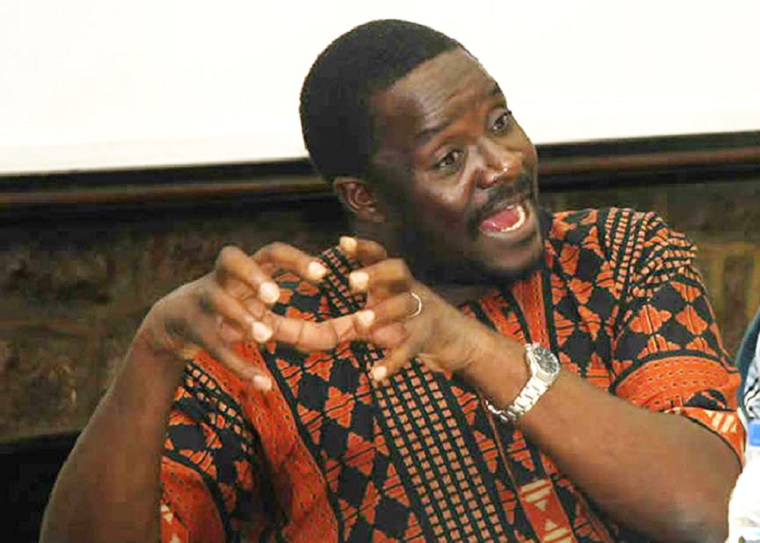 President Emmerson Mnangagwa will sign the Private Voluntary Organisations bill into law “in spite of the extra-mandate noises” from United Nations experts, Mnangagwa’s spokesman George Charamba says.
President Emmerson Mnangagwa will sign the Private Voluntary Organisations bill into law “in spite of the extra-mandate noises” from United Nations experts, Mnangagwa’s spokesman George Charamba says.
Four UN experts -Clément Nyaletsossi Voule, Special Rapporteur on the rights to freedom of peaceful assembly and of association; Mary Lawlor, Special Rapporteur on the situation of human rights defenders; Irene Khan, Special Rapporteur on the right to freedom of opinion and expression; Fionnuala Ní Aoláin, Special Rapporteur on the promotion and protection of human rights while countering terrorism- appealed to Mnangagwa not to sign the bill saying doing so would effectively be closing an already shrinking civic space.Charamba said: “It is behaviours like these on part of adjunctive or associational figures of UN which puts UN agencies into disrepute, including being kicked out of African countries, as happened a few days ago in East and West Africa!”
The bill was passed by the Senate at the beginning of this month.
Below is the statement issued by UN experts:
UN experts urge President of Zimbabwe to reject bill restricting civic space
14 February 2023
PRESS RELEASES
UN experts* today urged Zimbabwe’s President to reject enacting a bill that would severely restrict civic space and the right to freedom of association in the country.
The experts expressed deep concern that the oversight regime in the Private Voluntary Organisations (PVO) Amendment Bill for civil society organisations provides for disproportionate and discretionary powers to the newly established Office of the Registrar of PVOs, without independence from the executive branch.
The Senate passed the bill on 1 February 2023, and the legislation is currently before the President of Zimbabwe for his decision on its enactment.
The Registrar’s Office powers will include the ability to consider, grant or reject the registration of PVOs, with little to no judicial recourse against such decisions. “The bill’s requirements would also immediately render existing organisations, operating lawfully as trusts and associations, illegal,” the experts said.
“The Office of the Registrar will also have extensive powers to intervene in and monitor the activities of PVOs,” the experts said. They raised additional concerns about the prohibition of any “political affiliation” and unjustified restrictions on PVOs’ ability to obtain funding, including foreign funds. The vagueness or non-definition of many provisions in the bill also raises concerns that the proposed law will be misapplied.
They warned that actions considered to be in breach of certain provisions in the Bill could lead to criminal prosecution, with penalties ranging from heavy fines to imprisonment.
“While one of the stated aims of the Bill is to counter terrorism and money laundering in Zimbabwe, the restrictions contained therein will have a chilling effect on civil society organisations – particularly dissenting voices. By enacting this legislation, authorities would effectively be closing an already shrinking civic space,” the UN experts said.
They noted that the PVO Amendment Bill has faced strong opposition, especially from civil society organisations and the international community. The UN experts submitted an analysis of the bill to the Government in 2021, concluding that the Amendment was incompatible with international human rights obligations, in particular the right to freedom of association. Despite consultations with authorities and legislators, the current version of the PVO Bill does not address these concerns.
“It is not too late for the President to change course,” the experts said, urging him to reject the PVO Amendment Bill in its current form.
“We stand ready to assist the Government to revise the Amendment Bill to ensure compliance with international human rights norms and standards,” the experts said.
ENDS
*The experts: Clément Nyaletsossi Voule, Special Rapporteur on the rights to freedom of peaceful assembly and of association; Mary Lawlor, Special Rapporteur on the situation of human rights defenders; Irene Khan, Special Rapporteur on the right to freedom of opinion and expression; Fionnuala Ní Aoláin, Special Rapporteur on the promotion and protection of human rights while countering terrorism.
The Experts are part of what is known as the Special Procedures of the Human Rights Council. Special Procedures, the largest body of independent experts in the UN Human Rights system, is the general name of the Council’s independent fact-finding and monitoring mechanisms that address either specific country situations or thematic issues in all parts of the world. Special Procedures experts work on a voluntary basis; they are not UN staff and do not receive a salary for their work. They are independent of any government or organisation and serve in their individual capacity.
(140 VIEWS)






0 Comments